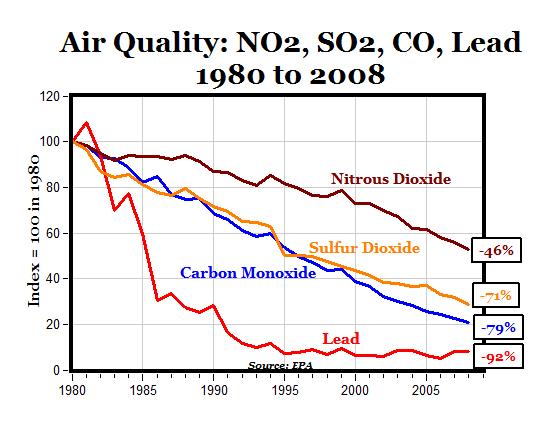Building on an idea that seems to have originated with Newt Gingrich, Presidential candidate Michele Bachmann has spent the past few weeks calling for the Environmental Protection Agency to be abolished. In the June 13th GOP debate, Bachmann said she would pass the “mother of all repeal bills” to target “job-killing regulations.” She indicated that she’d start with the EPA, and added that it “should really be renamed the job-killing organization of America.”
But a new poll from the conservative-leaning Rasmussen** finds that an overwhelming majority of likely voters, including more than two-thirds of independents, disagree with Rep. Bachmann. When asked whether they “favor or oppose abolishing the Environmental Protection Agency,” 61% of likely voters indicated that they are opposed: 
Notably, even likely Republican primary voters aren’t so sure about Bachmann’s proposal, with 42% wanting to abolish the EPA, 40% opposed to doing so and 18% unsure.
The new Rasmussen poll is largely in line with every other poll ever taken on the subject. A recent American Lung Association poll found that 66% of voters think the EPA should set pollution limits, rather than Congress. Similarly, a February 2011 poll found that 63% of Americans want the EPA to “do more to hold polluters accountable and protect the air and water.”
Voter support of the EPA is well-founded. As Kate Sheppard explains, a new CBO report (PDF) shows that “the EPA actually has the best track record among the agencies when it comes to setting rules whose pluses outnumber the minuses.” Here’s how the CBO explains the benefits of EPA’s rules:
It should be clear that the rules with the highest benefits and the highest costs, by far, come from the Environmental Protection Agency and in particular its Office of Air. More specifically, EPA rules account for 62 to 84 percent of the monetized benefits and 46 to 53 percent of the monetized costs. The rules that aim to improve air quality account for 95 to 97 percent of the benefits of EPA rules.
At the same time, it’s worth pointing out that the EPA has also been remarkably successful at doing what it is actually supposed to do: protecting human health and the environment. To wit, in the 1960s and 1970s, the United States was a pretty polluted place. Rivers were catching on fire, and from what I’m told, cities like Washington, DC literally stunk. Human health and the environment were clearly not adequately protected. So in the early 1970s, the EPA was created and a bunch of landmark environmental laws were passed giving the new agency the authority (and legal obligation) to reduce pollution. Lo and behold, the pollutants targeted by EPA rules decreased drastically: 
Honest observers will tell you that the EPA has been one of the most successful government agencies we’ve had in the past 40 years. It has largely accomplished the things it has set out to accomplish, and has done so in a way that generates more economic benefits than costs. You really couldn’t ask for much more.
And while Michele Bachman’s opposition to the agency is presumably based on some sort of principled stand against clean air, drinkable water and healthy communities, based on the polling I’ve seen, it seems highly unlikely to do her much good in the presidential campaign. Then again, if she’s actually running for Sarah Palin’s job, all bets are off.
**Rasmussen’s conservative bias is well documented. See here, here, here, here and here.
Subscribe to our newsletter
Stay up to date with DeSmog news and alerts





